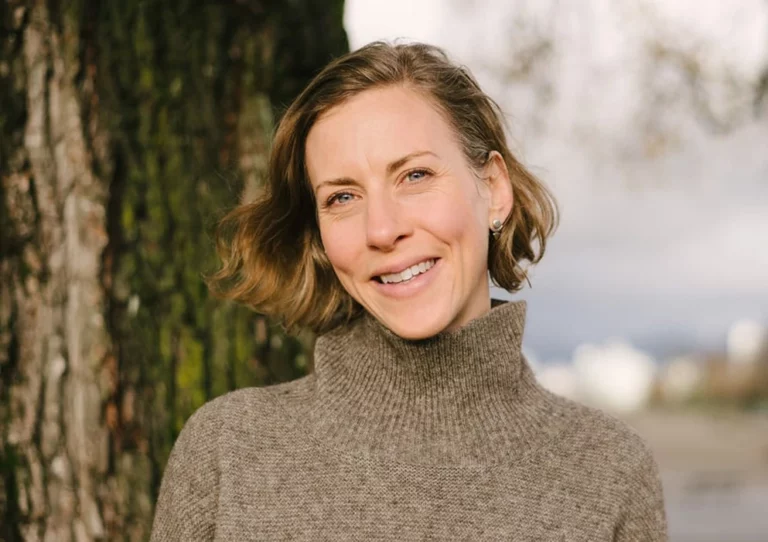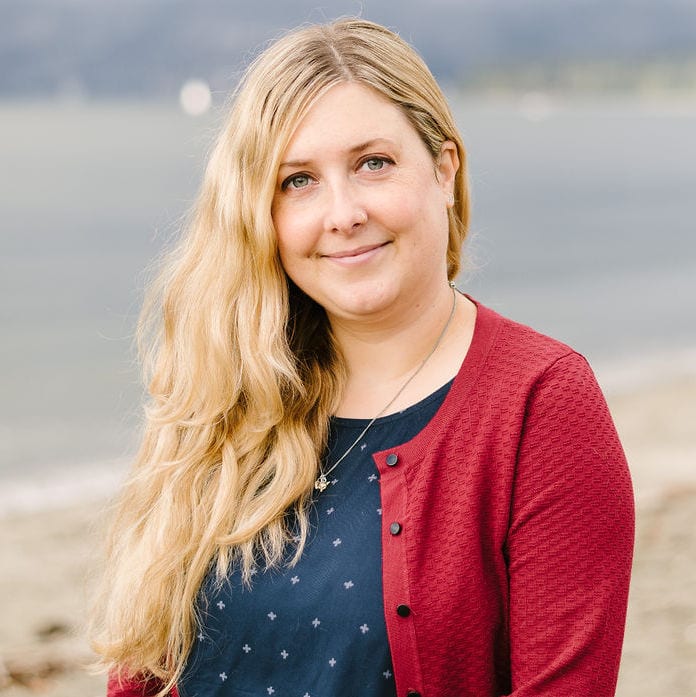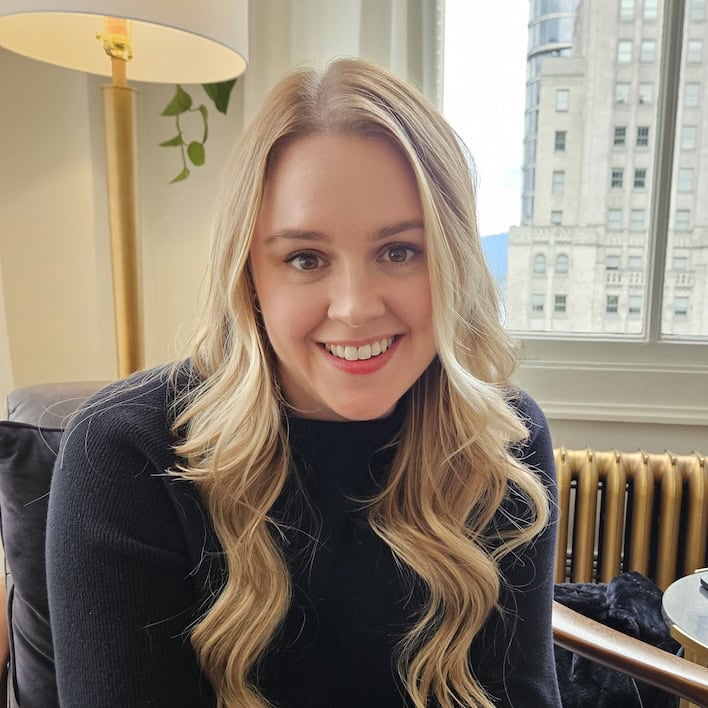OCD Treatment Vancouver
Counselling & Therapy for OCD
Obsessive-Compulsive Disorder (OCD) isn’t about being “quirky” or liking things clean—it’s a deeply distressing condition that can affect every part of your life. It can feel like your thoughts are hijacked, your behaviour isn’t fully your own, and no matter how hard you try to “just stop,” the anxiety always creeps back in.
At ARC, we specialize in helping people move beyond the cycle of intrusive thoughts and compulsive behaviours. Whether OCD has been present for years or is starting to interfere with daily life, therapy can help you regain a sense of control over your life again.
Symptoms of OCD
OCD can take many forms, but its impact is often the same. It can leave you feeling confused, isolated, or afraid of your own thoughts. You may know your fears are irrational, but they still feel urgent and real.
You might relate to:
- Feeling trapped by intrusive thoughts or mental images
- Performing rituals or mental “checks” to feel safe
- Avoiding people, places, or objects that trigger anxiety
- Repeating behaviours until they feel “just right”
- Seeking constant reassurance from others
- Feeling consumed by guilt, doubt, or fear
- Struggling with thoughts that feel taboo, shameful, or out of character
OCD is treatable, and you don’t have to face it alone. We’re here to help you break the cycle and reconnect with your life.
Common subtypes and obsessions
Contamination: People with this subtype clean their surroundings or wash themselves to cope with fear around germs, dirt, or contaminating chemicals. For example, they might worry that they’ve been infected with a disease after touching poles on public transit.
Doubt/Harm: People with this subtype have anxiety about putting themselves or others in danger because of their carelessness. For example, they might imagine their house on fire because they worry they didn’t turn off the stove.
Symmetry/ Arranging: People with this subtype feel the intense need to arrange objects symmetrically or in a particular order until they are “just right”. Disorganized items and messy environments can be stressful and uncomfortable until they correct them.
Religious: People with religion-themed OCD are preoccupied with obsessive religious doubts and sinful or blasphemous thoughts, images, and urges. Compulsions can include religious rituals (e.g. constant praying) and seeking moral reassurance (e.g. asking others if they are doing the “right” thing).
Sexual: This subtype features intrusive, disturbing, and unwanted sexual thoughts, sometimes about children, sexual orientation, family members, or animals. People find these thoughts to be immoral and shameful.
Obsessions without compulsions: Also known as Pure-O, this type of OCD features obsessions without any observable or physical compulsions. Instead, Pure-O compulsions take the form of “hidden” mental rituals, for example: replaying memories, repeating words, or even mental avoidance. The obsessions usually have themes of social, moral, or religious deviance. People with Pure-O feel alarmed by their thoughts and react by trying to neutralize or suppress them. Unfortunately, attempts to control them only reinforce the thoughts and worsen the distress and anxiety.
Treatment for OCD
It is often said that the only way to get past OCD is to go through it. In other words, trying to avoid the obsessions and intrusive thoughts only serves to strengthen them. Instead, treatment must focus on two things: a) challenging the core beliefs behind the obsessions/ compulsions, and b) learning to disengage from the compulsions.
Cognitive Behavioural Therapy (CBT) is considered the treatment of choice for OCD. Treatment begins by identifying the triggers that provoke the obsessions and compulsions. With your therapist’s guidance, you will gradually expose yourself to the anxiety-inducing thoughts, objects, and situations, and learn to resist the compulsions.
This is known as Exposure and Response Prevention (ERP). With gentle support, you will slowly learn to tolerate the distress of your obsessions, and your anxiety levels will start to drop. Eventually the anxiety should dissipate completely and you will no longer feel a need to perform the compulsions. This process is called habituation, and treatment usually takes between 12-16 sessions total.
Let’s work through OCD together
At ARC, we understand the toll that living with OCD can take on your life. The good news is that OCD usually responds well to therapy, and our therapists take pride in providing effective and compassionate support to help you find relief.
Whether you’re new to therapy or returning after past efforts, we’ll meet you exactly where you are. Reach out today to schedule your free consultation with one of our OCD therapists.
Meet Our Vancouver Therapists

Tianna Bobariu
Registered Clinical Counsellor (RCC)

Amenda Kumar
Registered Social Worker (RSW)

Kristen Rattray
Registered Clinical Counsellor (RCC)

Kiana Maeda
Registered Clinical Counsellor (RCC)

Jack Wong
Registered Social Worker (RSW)

Danielle Simpson
Registered Clinical Counsellor (RCC)

Elise Millett
Registered Social Worker (RSW)

Lilian Wang
Registered Clinical Counsellor (RCC)
Getting The Help You Need is Easy
Reach Out
Fill out our easy contact form. All we need is your basic info, and a few words about what brings you to therapy.
Free Consultation
We’ll reach out to schedule your complimentary consultation. We’ll discuss your goals, questions, and make sure we’re the right fit.
Start Therapy
Feeling ready? We’ll book your first session and create a personalized plan to help you live the life you deserve.
Our Step-by-Step Process to Treating OCD
Creating Safety
We begin by building trust and understanding your experience with OCD—without judgment or shame. You’ll never be forced into exposures before you’re ready.
Understanding the OCD Cycle
We’ll help you map how your obsessions trigger anxiety and how compulsions temporarily relieve it—keeping the cycle alive. Awareness is the first step toward change.
Learning to Tolerate Discomfort
Through ERP, you’ll be gently exposed to your feared thoughts, images, or situations—without engaging in compulsions. Over time, your distress will decrease and your confidence will grow.
Building Tools to Manage Urges
You’ll learn emotion regulation strategies, grounding techniques, and cognitive tools to help you resist compulsions and navigate urges with more clarity.
Exploring Meaning & Self-Compassion
Many people with OCD struggle with shame, doubt, or perfectionism. We’ll support you in reclaiming your sense of identity, worth, and agency—beyond OCD.
Moving Towards Freedom
As the OCD cycle loosens its grip, we’ll focus on building a life aligned with your values—not your fears. We’ll celebrate your progress and keep supporting you as new challenges arise.
Frequently Asked Questions
What is OCD?
Obsessive-Compulsive Disorder (OCD) is a mental health condition involving unwanted, intrusive thoughts (obsessions) and repetitive behaviours or mental acts (compulsions). These compulsions are usually attempts to reduce the anxiety or distress triggered by the obsessions, but the relief is usually temporary. Over time, OCD can significantly interfere with daily life, relationships, and emotional wellbeing.
What is ERP and how does it work?
ERP (Exposure and Response Prevention) is the gold standard treatment for OCD. It involves gradually facing feared thoughts or situations—without doing the usual compulsions—so your brain learns that you’re safe without them. Over time, this reduces the power of the obsessions and the urge to respond to them.
Do I have to do exposures right away?
No. We’ll never push you into exposures before you’re ready. We begin by building emotional regulation tools and mutual trust. You’ll be supported every step of the way and empowered to move at your own pace.
Is therapy effective for OCD?
Yes. ERP and CBT are both highly effective for treating OCD. Many clients experience significant improvement in symptoms, reduced anxiety, and increased freedom in daily life. Like any therapy, progress depends on consistency and a good therapeutic fit.
What if my OCD doesn’t involve physical compulsions?
This is often referred to as “Pure-O” (pure obsessional OCD) and includes mental compulsions like checking, reviewing, or neutralizing thoughts. ERP still applies—it just focuses on internal responses and rituals.
How long does OCD treatment usually take?
For most clients, treatment takes somewhere between 12–16 sessions total. However, treatment length varies based on the severity, duration, and complexity of symptoms. We’ll regularly check in on your progress and adjust our pace accordingly.
Is everything I share in OCD therapy confidential?
Absolutely. Everything you share in therapy is kept strictly confidential, with only a few rare exceptions (such as if there’s a risk of serious harm to yourself or others, or in cases involving abuse of a vulnerable person).
Many clients tell us that having a safe, judgment-free space to talk openly about intrusive thoughts or compulsions is one of the most relieving parts of therapy. Knowing that your experience is held with care and without judgment can make it easier to explore what’s really going on—and start the process of meaningful change.
Is OCD therapy covered by insurance?
Yes. Most extended health plans cover therapy with a Registered Clinical Counsellor. We’ll provide a receipt for reimbursement—many clients are reimbursed within a few business days.
How will I fit appointments into my busy schedule?
We understand that life is hectic—that’s why we offer flexible evening and weekend appointments, as well as online therapy options you can attend from home. Whether you prefer a consistent weekly time or need a bit more flexibility, we’ll work with you to find a schedule that supports your goals and respects your time.
What if I feel ashamed about my thoughts or obsessions?
You’re not alone. Intrusive thoughts often feel scary, taboo, or “wrong”—but they don’t reflect who you are. OCD thrives on shame and secrecy. Therapy offers a safe, nonjudgmental space to explore these fears and loosen their hold.
A Message of Support from Our Director

Hi, I’m Kelsey, the Clinical Director here at ARC. I want to start by saying something that doesn’t get said enough – it’s okay to need support.
If you’re reading this, you might be feeling overwhelmed, stuck, or simply not yourself. At ARC, we understand how deeply personal it is to reach out for help. That’s why we’re so intentional about the care we offer. Every therapist on our team is here because they lead with heart, bring strong clinical training, and truly care about helping people feel better.
We also know that feeling safe in therapy means feeling seen and respected. That’s why we’re committed to creating an inclusive space – one that honours your identity, your culture, and your lived experience.
My role is to make sure your experience here is thoughtful, safe, and meaningful – from your very first point of contact to the support you receive in therapy. If you’re unsure about where to start, I encourage you to reach out for a free consultation. I’ll personally take the time to read your request and match you with one of the therapists on our team.
You’ve already taken the first step by being here. When you’re feeling ready, take the next step by reaching out – and we’ll walk the rest of the way together.
Take the next step towards feeling better today

Location
470 Granville St, #922
Vancouver, BC, V6C 1V5
Our Hours
Mon – Fri: 09:00 – 21:30
Sat – Sun: 09:00 – 20:30
